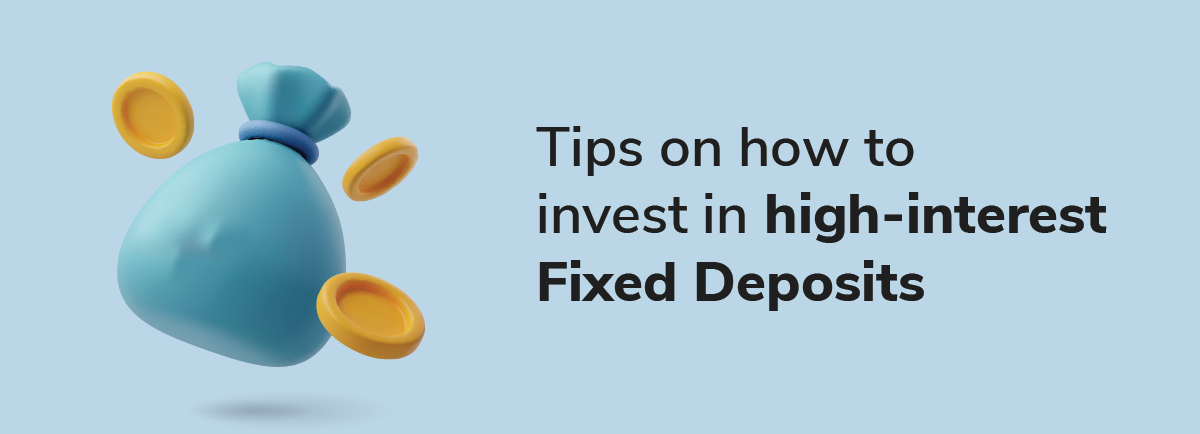
7 tips to invest in high-interest Fixed Deposits
22 January 2024 | By INDIE
Fixed deposits have been the traditional investment choice for both new as well as seasoned investors. The reason why this investment instrument is so popular is that fixed deposits do not involve the risk that other market-influenced investment tools are prone to while offering a higher interest rate as compared to basic savings accounts. With guaranteed returns, a high-interest fixed deposit can help you work towards clearly defined investment goals and plan your finances accordingly.
Now, you need to focus on choosing the right investment strategy while investing in a fixed deposit to maximise your returns. Go through the following 7 tips that can help with setting up the right approach to how to invest in an FD:
1. Make sure to split your money
You can either invest a lumpsum amount in a single high-interest fixed deposit with a bank or choose to split your funds in multiple FDs. Choosing to do the latter is advisable and this is why – If you are ever in urgent need of funds and have to break an FD, you would have to break the FD containing your entire investment amount. This is where having multiple fixed deposits is advantageous since you do not need to break all of them. You only need to break one or two FDs depending on the amount you need, ensuring that the remaining FDs remain steady.
2. Avoid prematurely withdrawing your FD
Breaking a fixed deposit before its maturity date is never advisable since doing this can attract a fee. Of course, during a time of emergency, you might not have a choice but to break your FD. In such cases, some banks can permit a partial or premature withdrawal of the deposit before its maturity date along with a penalty fee. Do note that the interest payout would also get affected based on the remaining maturity period.
3. Compare interest rates before opening a fixed deposit
Different banks would offer varying rates on their fixed deposits. While the highest fixed deposit interest rates offered by various banks might be similar, the total interest payout can make a significant difference based on the amount and tenure you choose for your fixed deposit investment. So, make sure to compare the varying interest rates and choose a bank that offers you a high-interest FD.
4. Focus on choosing a suitable tenure for your FD
The interest gathered at the end of a fixed deposit’s tenure depends on the amount you have invested and the tenure chosen. So, make sure to choose a suitable tenure based on your financial goal. You can also open multiple fixed deposits with different tenures to maximise your returns.
5. Keep in mind the tax liability on FDs
Before you invest in an FD, do note that the interest earned through this instrument is taxable as per your income bracket. You can choose to opt for tax-saving FDs that come with a lock-in period of 5 years wherein the amount invested does not qualify for tax deductions.
6. Reinvest the interest earned through your FD
Reinvesting the interest earned through your fixed deposit will help in increasing the principal amount of your fixed deposit. This would be a smart move since you would be able to get higher interest in an FD through the power of compounding.
Conclusion
An investment in a fixed deposit can gather a decent interest output for fulfilling your financial goals. If you are looking to open a high-interest FD, consider opting for an INDIE fixed deposit to enjoy benefits such as a hassle-free booking, high-interest rate, and most importantly, auto-renewal options and multiple alternatives for the interest payment (monthly, quarterly, half-yearly, yearly, or at maturity). So, head over to the official Indie App and apply for an FD today!




